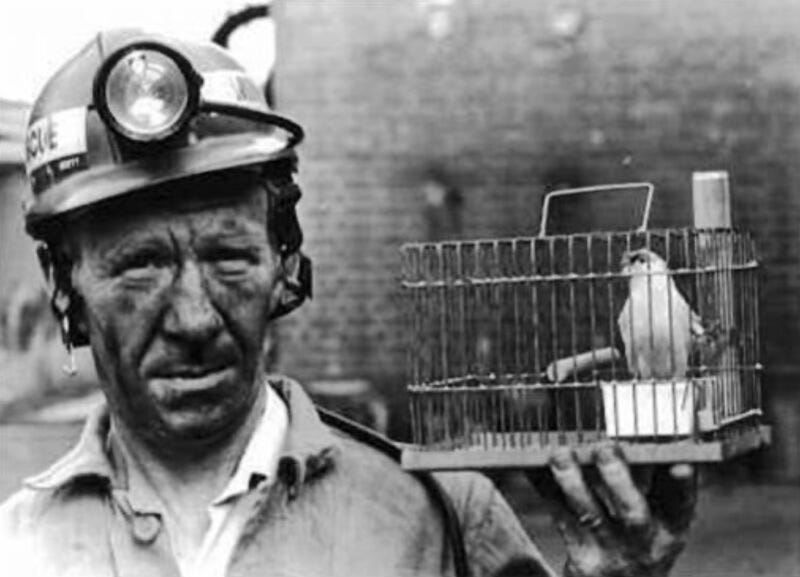Labels
And detecting burnout
Sharing last week's post was hard because I used to think having ADHD or anxiety were labels people hid under to excuse their behaviour and avoid changing.
But I've realised that no one wants to feel scattered, stressed, or trapped.
So I shared my story to help people realise they aren't prisoners to those conditions.
Often they’re symptoms of bad habits, like mine were, and you can change them. But only if you believe you can.
Anyway, enough ranting and on to a story I hope you find useful.
In early 1896, 57 miners and 80 horses died when a Welsh coal mine exploded.
British scientist John Scott Haldane was hired to investigate, and discovered that a buildup of gas (carbon monoxide) was to blame.
A buildup the miners didn't notice because they were so focused on work.
To prevent more deaths, Haldane suggested placing animals more sensitive to gases than humans in the mines to alert the miners before it was too late, settling on the canary because it would die at the slightest sniff of gas.
This approach worked great and Haldane was hailed a hero, as the decision to put canaries in coal mines saved millions of lives.
I love this story because I think we all need our own "canary in the coal mine" to detect early signs of burnout.
Burnout, like carbon monoxide, can be hard to spot. Especially when we're stressed about work, and it can build up unnoticed until it's too late.
It often starts subtly, like trouble sleeping, constant fatigue, or feeling more irritable than usual.
But catching it early is key, and can be the difference between needing an afternoon off versus a month's leave.
I was lucky to have my readiness tracked for me while playing professional rugby, which is basically my body's ability to handle stress.
The trainers tracked it to prevent injury, and I've fallen apart a few times without having the trainer tell me “it's time to recover” instead of pushing ahead.
But the average person doesn't have someone managing their workload for them, and the early signs of burnout differ from person to person.
For me, I know I'm close to the edge when my heart rate variability (HRV)—a measure of how well my body is recovering and managing stress—remains low for too long or when I'm relying on multiple coffees a day to get by.
And if everyone had their own 'canary' to detect the early signs of burnout, I think burnout and work stress would decline heaps.
What’s your canary?


Ben, I was both inspired & grateful for your post about your struggles. Sharing your vulnerabilities is, I think, a super power. All power to you.